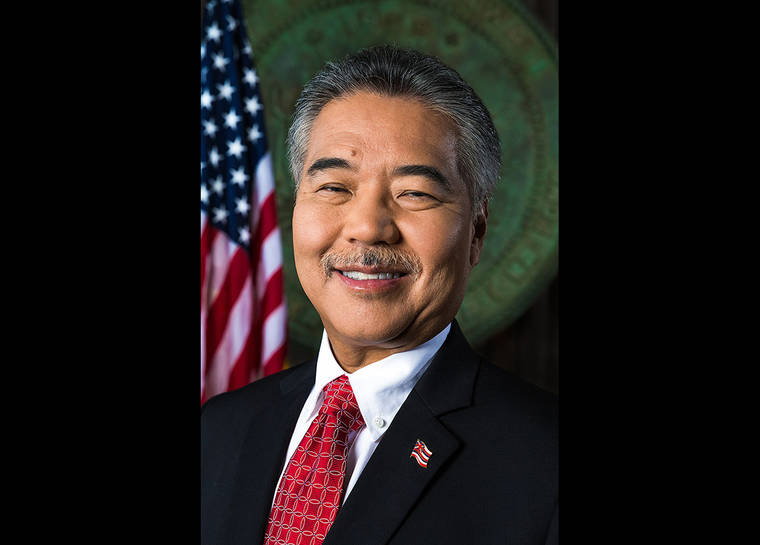The state Legislature voted Tuesday to override Gov. David Ige’s veto of a bill that would restructure the state’s Transient Accommodations Tax program and curtail funds for the Hawaii Tourism Authority.
Ige vetoed 26 bills on Tuesday, including the contentious House Bill 862. Once a largely innocuous bill transitioning an aerospace program from one state department to the University of Hawaii, the bill become, through a series of sweeping amendments and new drafts, a controversial measure aimed at restructuring tourism management in Hawaii.
In particular, HB 862 repeals the counties’ allocation of TAT revenues, instead allowing the counties to establish their own TATs of up to 3%. It also abolishes entirely the TAT-funded Tourism Special Fund, HTA’s primary source of revenue, and reduces the HTA’s duties and responsibilities.
By doing so, HTA will have to request funds from the Legislature each year like every other state agency, although the bill does allocate to HTA $60 million from the American Rescue Plan Act for the current fiscal year.
Ige said during his official veto notice on Tuesday that the bill was objectionable for several reasons, but especially because of the increased financial strain brought upon by the COVID-19 pandemic.
“I’m very concerned that HB 862, as passed, would severely damage HTA’s ability to focus on our efforts to move beyond marketing and really get to destination management,” Ige said. “Now more than ever, we need to strike a balance on a sustainable and respectful visitor industry and mitigating the impacts on our community.”
Ige added that the changes to the TAT would create an inefficient system compared to the current disbursement of the funds.
However, many legislators in the House and Senate disagreed with Ige during floor sessions Tuesday, arguing to override the governor’s veto and pass the bill anyway.
“Despite the public rhetoric that’s out there, the impact to HTA in this bill is things that … they’ve agreed to move forward with,” said Hilo Rep. Richard Onishi. “And this $60 million budget they’re getting, that’s something they can live with.”
Other legislators argued that curbing HTA’s funding is exactly the point of the bill and is necessary for a sustainable tourism strategy.
“We all love this island. We go home, and we would like to continue to share its grandeur and beauty with the rest of the world,” said Oahu Sen. Bennette Misalucha. “But it needs to be done in appropriate ways using effective tools ensuring that the funds dedicated towards its purposes are used wisely and effectively.”
Misalucha said she voted for the bill in the first place because she had doubts about the effectiveness of HTA’s management, calling them unresponsive and slow amidst a crisis.
“Every year, our state agencies are required to validate their budgets and present their plans and … financial objectives,” Misalucha said. “Since its inception, HTA has been exempted from this scrutiny. However, based on past performance for the past few years, HTA will need now to convince the Legislature that it is deserving of this autonomy.”
There was some opposition Tuesday to the override in the Legislature. Hilo Sen. Laura Acasio said she would support certain aspects of the bill taken on their own, but was critical of the gut-and-replace method that added the TAT and HTA language to the bill so late in the legislative session.
“Originally, (the bill) was one line,” Acasio said. “And then it ballooned at one point, at the very end of our session … and it became 58 pages long with multiple parts. And the title is ‘Relating to State Government,’ which is very broad, and therefore anything within its body can relate to ‘relating to state government.’ Therefore, it became what I call a Frankenstein bill, and in the honor of transparency in our democracy and government … this would not be okay with me back home as a constituent.”
Acasio said the entities most affected by the language added to the bill have had the least amount of time to comment on it.
However, the House voted 38-8 (with four lawmakers excused) in favor of overriding Ige’s veto and passing HB 862. The Senate voted 17-8 in favor of the override. Both votes met the two-thirds threshold required for a veto override, and the bill became law Tuesday afternoon.
The House and Senate also voted to override four of Ige’s other vetoes of the following bills:
• Senate Bill 263, which establishes a “Hawaii Made” program in the Department of Business, Economic Development, and Tourism. Ige said the bill would result in duplicative jurisdiction between DBEDT and the Department of Agriculture.
• Senate Bill 404, which exempts political candidates from having to file electioneering communication statements, and broadens the reporting requirements for such statements. Ige said that, by exempting candidates from said requirements, the bill unfairly reduced the amount of information provided to the public prior to elections.
• Senate Bill 811, which requires the Department of Education to publish a weekly report on schools that have reported positive COVID-19 cases, which Ige opposed for its potential to cause harassment and discrimination, as well as redundancy with existing DOE protocols.
• Senate Bill 1387, which requires dog or cat owners to microchip their pets. Ige said the bill includes an exemption for a “designated population management program” which is not a term defined in any statute or rule.
The Legislature will reconvene Thursday to consider other potential veto overrides and amendments.
Ige’s full veto list can be found at tinyurl.com/5y4amut9.
Email Michael Brestovansky at mbrestovansky@hawaiitribune-herald.com.






